Laws Of Salvage – 10 Things You Must Know
Salvage, as defined by the Merriam Webster, is the act of saving or rescuing property in danger. From a legal perspective of the maritime industry, salvage takes on a very significant role.
From as early as the 15th century, ships and other sea-going vessels have been salvaged when they sank, ran aground, or otherwise befell some calamity. Salvage in this domain encompasses saving any property on board a ship.
The ship in question must no longer be able to sail but should not have yet been condemned.
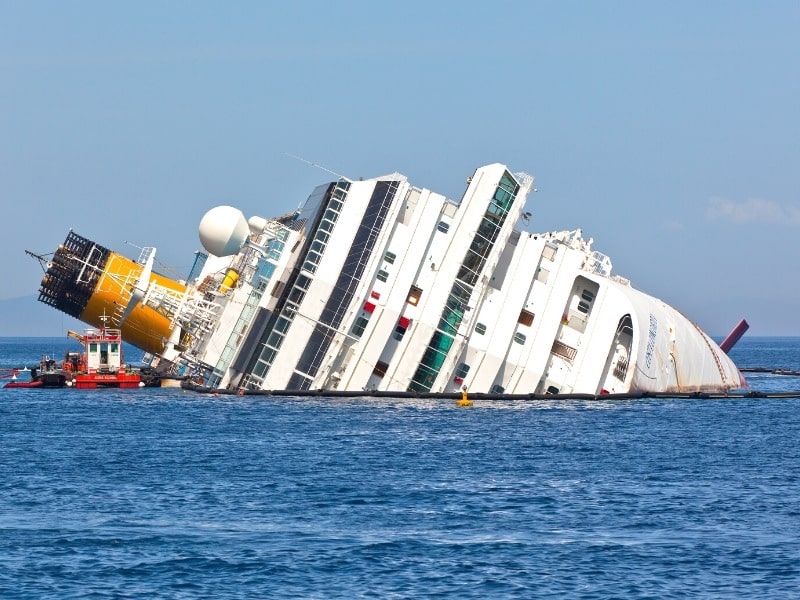
Maritime Law governing salvage has been around for several centuries and governs the legal intricacies involved in this field. Underwater wrecks are extremely treacherous, and finding experienced professionals willing to scour the remains for items of value or importance can be challenging.
Most shipowners and operators have a limited team that can handle such activities. But for large ships and vessels, contracting a higher number of individuals becomes inevitable. In such a situation, ample reward must be given to people who salvage items from the ship, and this comes under the purview of maritime salvage.
Another reason why maritime salvage is a very tricky operation undertaken by a select few is due to the highly complex legal technicalities and ramifications that come attached to it.
Whether you have hired a third-party contractor or are undertaking operations for a ship operator, the clauses intended to keep the field of maritime salvage fair and problem-free are often confusing. This makes it extremely necessary to have a clear understanding of the legal terms, concepts, and consequences involved in this domain.
In this article, we will look at 10 of the MUST KNOW facts involved in maritime salvage.
Knowledge of these technical intricacies is important to ensure that you have covered the legal aspect when hiring someone to undertake salvage operations on your behalf.
It is also useful to people undertaking such operations so that they are aware of the payments, perils, and procedures to be expected when dealing with wreck salvage operations.
All legal points mentioned in this article are as per the latest edition of the International Maritime Organization’s (IMO) handbook on maritime salvage.
They are covered as per the articles under the International Convention on Salvage (1989) and follow modern norms in this field.
1. Know the different types of maritime salvages and the aspects that come with it.
Maritime salvage is not restricted to a single generalized framework that governs all types of vessels and locations. Instead, it is a broad umbrella term referring to the categories that it governs.
For instance, there may be offshore salvages involving bringing up property or a vessel itself from an offshore location. This refers to any open body of water not surrounded by coastline and extending beyond a nation’s territorial waters. Here, the operating and environmental conditions are very harsh due to the unsheltered nature of the salvage.
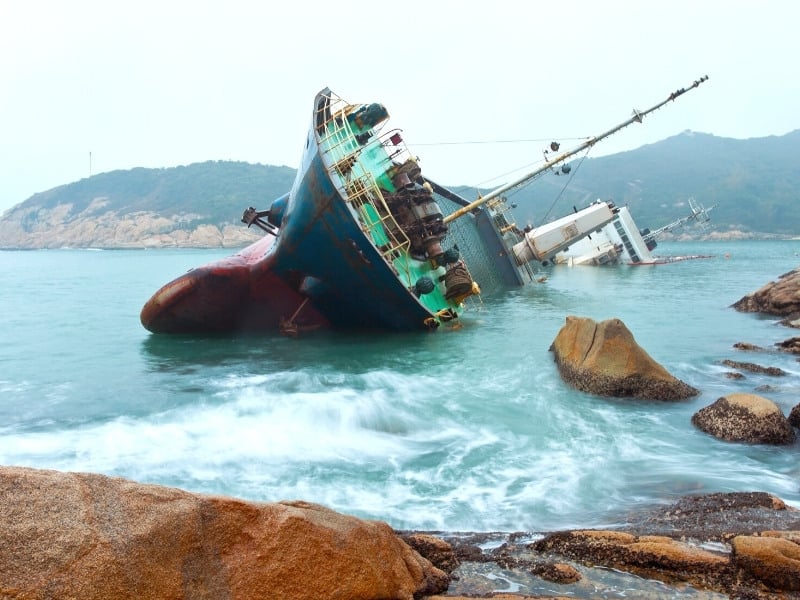
A ship may need to be salvaged if it has sunk or been damaged near a port or harbour. The wreck may blockade the port of the nation for an extended period of time, creating an economic loss and a backlog of vessels scheduled to berth. Here, time is of the essence, and care must be taken not to damage the port facilities while salvaging the vessel.
However, it is easier than offshore salvages since facilities are available owing to the proximity to land and nearby yards.
Note that each location will have to be handled in a different manner such that the ship can be salvaged to the highest degree and with minimal costs to the owner. Different techniques and strategies need to be adopted depending on the conditions that can be expected.
2. Operators may only require you to salvage certain parts of the ship and not the vessel in its entirety.
The primary cause for confusion, protracted legal battles, and financial losses to the parties involved in a salvage contract is when the terms are not clearly laid down and understood by all the stakeholders. A major point of contention is regarding the property and structures that are to be salvaged under the contract.
Generally, it boils down to a clear case of miscommunication and the terms may not clearly lay down whether the entire ship is to be salvaged. However, it is important for both parties to ensure that the expectations are clearly stated prior to beginning with the salvage operation.
In most cases, the entire vessel will have to be salvaged to prevent environmental fouling or if the wreck is a potential hazard to ships passing through the region. On the other hand, based on private studies of the feasibility of lifting and towing the wrecked vessel, it may be decided to only salvage certain items of importance.
This includes containers and other cargo storage units, equipment on board a ship or offshore installation, personal effects etc. Remember, payment will only be made towards the successful recovery of the property mentioned in the salvage contract.
3. There are very specific conditions set to define acts that are considered to be salvage.
Salvage can encompass a wide meaning depending on the context. This ambiguity can lead to contention or legal issues after salvage operations. Merely returning a portion of the property to the owner of a ship is not constituted as an act of salvage. Care must be taken by salvors to ensure that they adhere to certain rules such that they are entitled to rewards. Similarly, ship owners must be aware of the conditions pertaining to salvage such that they are not forced to pay out unnecessary awards.
The rules for such a rendered service to be considered as an act of maritime salvage are:
1. Property salvaged includes one of the following- a ship or vessel, the cargo on board, or payable freight. Liability salvage entails making efforts to protect the environment from damage.
2. The property mentioned must face real peril, but not necessarily absolute or immediately.
3. The salvor’s service must be voluntary i.e., they did not act under prior contracts or obligations. There must be no self-preservation interests involved.
4. Lastly, some pre-defined level of success must be achieved, else no pay is legally entitled to the salvor (referred to in the industry as “No Cure; No Pay”).
4. There are very specific conditions set to define the award and contractual payment awarded to the salvor.
Alongside contracts created to safeguard the payments assured to a salvor on completion of a successful salvage, there are several conditions that determine the award that can be expected. These conditions include but are not limited to:
1. The extent of success of the salvage.
2. The extent of potential danger faced by the salvor.
3. The valuation of the salvaged property.
4. All the articles listed within the relevant sections of the 1989 Salvage Convention.
5. Adherence to the proposed time frame to complete the salvage.
5. In recent times, another factor that determines the size of the reward includes whether a reasonable effort was made to prevent environmental damages.
Both salvors and ship owners must be aware of the regulations and Articles 13 and 14 of the IMO Convention in order to ensure that a suitable amount of reward is agreed upon.
5. Special consideration is given to salvage efforts to save and preserve the environment.
Salvage operations are not necessarily successful due to a variety of factors. If determined that the highest degree of salvage was carried out while adhering to the terms of the contract, a small reward may be provided subject to the discretion of the shipowner or operator.
In such cases, the remainder of the wreck or stranded ship may pose a major environmental risk, especially in the case of bulk carriers and tankers that carry polluting substances such as crude oil, LNG, CNG, coal, and other hazardous substances. In such cases when a salvor makes an effort to prevent environmental hazards to the best of the ability determined by an independent arbitrator, the individual is provided with a special reward for environmental consideration.
Such rewards are not common but have recently been introduced to ensure that all efforts are taken to preserve the environment. If you are a salvor, you may be entitled to such a payment for your actions. However, it is not obligatory for the shipowner to pay such an award and is subject to several other factors. In case of conflict, the decision is usually made by a suitable court of maritime law. Some governments also pay rewards for environmental liability salvage.
6. Salvage includes naval aid but does not extend to foreign naval warships and submarines.
All kinds of ships meet with disasters while at sea, ranging from small fishing boats to large tankers and passenger’s vessels. Often, they may be near another nation’s territorial waters without aid from any other vessel in the vicinity. In such cases, naval vessels are obliged to aid in rescue and salvage operations to prevent unnecessary loss to life and property. Their responsibility covers lending aid to the affected vessel, crew, and passengers. It may also encompass further salvage operations which cannot safely be undertaken by civilian salvors. Several navies around the world have dedicated search and rescue units to aid in preliminary salvage following a maritime disaster.
However, the same logic does not extend to warships and submarines belonging to the navy of a foreign country. Such vessels can be lent aid by other vessels, but cannot be salvaged under any circumstances. This is done to prevent espionage and illegal gathering of data from these vessels. They are off-limit to all salvage operations other than the flag nation of the vessel. This rule was not in effect during the Cold War era when the United States covertly salvaged a Soviet submarine under the pretence of mining for subsea manganese nodules (1974).
7. The IMO Convention does not cover certain types of offshore platforms and installations.
The bulk of the IMO Convention covers maritime salvage of ships and other vessels but does not include offshore structures such as drilling units and other installations. This is subject to the condition that they must be engaged in some sort of sub-sea mining or resource exploitation. For this reason, salvage operations for offshore structures conducting research for private and governmental bodies are covered under the articles of the Convention.
For salvaging offshore structures not covered by the 1989 IMO Convention, a local court of maritime law or other suitable regulatory body can be consulted regarding salvage operations and the subsequent reward to be paid. As the majority of such installations are private, the operating companies usually employ contractual salvors to salvage the structure in case of any damage.
8. There is a strict time frame to be followed in order to receive the compulsory reward.
Salvation operations are costly to both the salvor and the shipowner, as it takes up equipment and manpower. Thus, a fixed time frame is necessary to establish a realistic expectation of the duration that will be required. This is intended to protect the shipowner in case a salvor makes attempts to delay operations but still claim the reward. In case the salvage is completed beyond the agreed period, a penalty or fine may be levied upon the salvor.
Despite salvage operations being limited to a fixed time frame determined during the contractual phase, the ship technically remains as the property of the shipowner. In future, if efforts are taken to salvage a vessel and its cargo, the contents still belong to the owner and no legal claim can be made upon it by the salvor.
9. No Cure; No Pay is routinely enforced to prevent unlawful claims on rewards and other benefits.
An age-old adage used in the maritime salvage industry is “No Cure; No Pay” referring to the fact that without a reasonable level of success in salvaging operations, no award or payment is to be expected. This is enforced to prevent salvors from partially recovering the wreck and then claiming the entirety of the reward. The definition of reasonable success is often agreed upon by the contract parties. Any salvage below this standard does not have to be paid for by the shipowner.
The exception to this rule is in cases where significant environmental damages have been prevented owing to the timely actions of the salvor. A partial reward may be paid for this either by a governing body (such as a regional maritime law enforcement authority) or the shipowner itself.
10. Most ship owners engage salvors in order to prevent the plunder of their vessels and property.
Shipowners hire salvors on a contractual basis for 2 primary reasons- to recover items of value and to prevent the plunder of the vessel. Plunder refers to an individual salvaging items from a ship illegally and without the permission of the shipowner. In such cases, valuable items may not be returned to the shipowner, or the perpetrator may demand a very high fee for the salvage.
For this reason, ship owners preemptively hire contractual salvors in order to salvage the wreck before other parties have an opportunity to plunder it. Strict protocols are followed to ensure that no item is recovered covertly and withheld from the rightful owner. When hiring salvors to conduct salvage operations on your vessel, it is essential to hire from a reputed firm so that instances of plunder may be reduced.
You may also like to read – What Is Deep Water Recovery?
Disclaimer: The authors’ views expressed in this article do not necessarily reflect the views of Marine Insight. Data and charts, if used, in the article have been sourced from available information and have not been authenticated by any statutory authority. The author and Marine Insight do not claim it to be accurate nor accept any responsibility for the same. The views constitute only the opinions and do not constitute any guidelines or recommendation on any course of action to be followed by the reader.
The article or images cannot be reproduced, copied, shared or used in any form without the permission of the author and Marine Insight.
Do you have info to share with us ? Suggest a correction

About Author
Ajay Menon is a graduate of the Indian Institute of Technology, Kharagpur, with an integrated major in Ocean Engineering and Naval Architecture. Besides writing, he balances chess and works out tunes on his keyboard during his free time.
Latest Maritime law Articles You Would Like:
Latest News
- What is the Purpose of DG Shipping?
- What are Logistics Risks?
- How Port and Terminal Operators Can Control Emissions?
- Minimum Quantity Commitment (MQC) and Liquidated Damages in Container Shipping: Concept and Relevance
- MARPOL (The International Convention for Prevention of Marine Pollution For Ships): The Ultimate Guide
- The Ultimate Shipping Container Dimensions Guide
Subscribe To Our Newsletters
By subscribing, you agree to our Privacy Policy and may receive occasional deal communications; you can unsubscribe anytime.



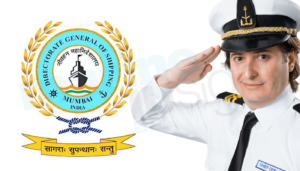
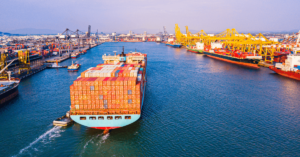
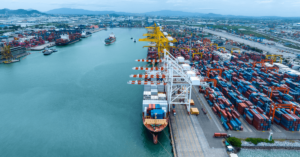
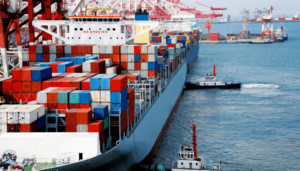
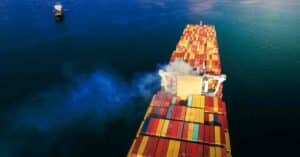


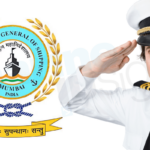
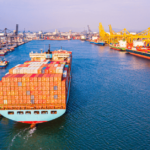
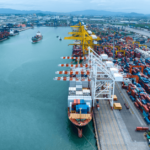
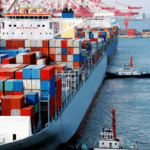


Very interesting and informative article. I was particularly enlightened by the information about restrictions of salvage of warships and submarines due to espionage. In that regard I have one question which begs to be answered.
During every major world conflict civilian Freighters and Cargo ships of various kinds, including Passenger ships, were used to transport war goods and provisions. Many of these were sunk by enemy forces. Some in waters belonging to a particular country, others in international waters. What are the laws pertaining to salvage of this type? Is there a difference in international waters and is there a difference if it is entire vessel salvage versus cargo only salvage?
Thank You in advance for your reply and its information.
We are glad you found it useful.
There is no difference in the laws pertaining to salvage in international waters versus those in waters belonging to a particular country. However, the laws of the country in whose waters the ship is located may also apply, and these laws may differ from country to country.
In the case of salvage of entire vessels, the salvor typically has the right to keep the vessel if the owner is unwilling or unable to pay the reward. However, the salvor is responsible for ensuring that the vessel is not a hazard to navigation and that any hazardous materials on board are properly disposed of. In the case of cargo only salvage, the salvor typically has the right to sell the cargo and retain the proceeds as payment for their services.
It’s also worth noting that there are some cultural heritage laws that might come into play if the sunken ship is of historical importance.
Please note that this information is general in nature, and specific laws and regulations may vary depending on the country and the circumstances of the salvage operation.